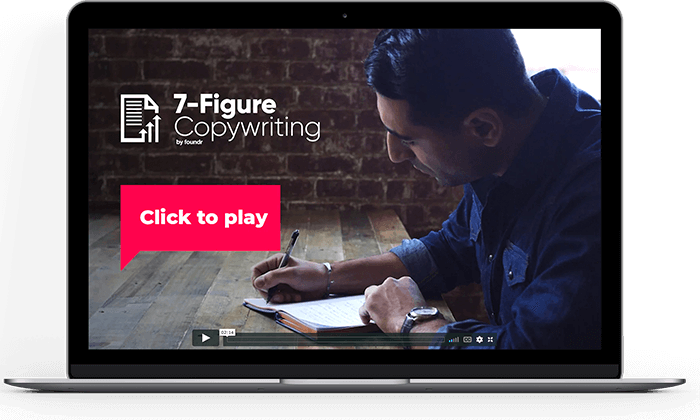Total Reading Time: 7 minutes
What other people think about you doesn’t matter. Right?
Well, unless you’re walking around in one of those “I hate people” t-shirts on for the rest of your life, it does matter.
As much as we’d like to believe no one will judge us for our words and actions, it’s just not true. We judge. On top of it, we’re born with an innate desire to please others. On the surface we like to maintain a certain appearance. Positive or negative feedback affects our egos, but not in the way you might think.
Lately I’ve been studying leadership, ego, and conceit. Simon Sinek is a brilliant man and leading the way in this space. He’s famous for his TED Talk How Great Leaders Inspire Action (one of my all time favorites). He’s also written books on these topics, including his latest Leaders Eat Last.
It appears there is a positive correlation between having a strong ego and being a successful leader. I know what you’re thinking. The best leaders are humble, not egotistical. I thought the same thing myself, until I looked up the definition of ego.
Definition of Ego
e·go. noun. a person’s sense of self-esteem or self-importance.
Hmm…belief in oneself. I think everyone should have that, no?
I believe we’ve been mistakenly calling conceit “ego”, all along. If we want to be leaders (and I do believe anyone can), then we definitely need to exercise strong self-esteem.
So what’s the difference between ego and conceit?
Definition of Conceit
con·ceit. noun. excessive pride in oneself.
Conceit is what makes some people in the world targeted with extra haters. The ones that come out of the shadows just to have a say. Being humble and having a strong ego are mutually exclusive. You can have one without the other, and having both is better. Having humility will go a long, long way in your personal and professional life. I learned this the hard way.
What on earth does this have to do with saying no?
Everything, amigo. Here’s what we already know: if we walk around behaving like a hot shot, people will think we’re conceited jackasses.
I’m talking about earning a deserved respect. With a respect like this our appearance becomes authentic. You then don’t have to worry about what people think of you. You can be that leader and serve your network, while still being able to say no.
Yes—what people say about you, your business, your credibility, and your accomplishments is important. As many say, these people are your “tribe”. It’s important to have an outstanding relationship with your tribe.
As you begin to find more success and build credibility, you’ll get approached by new faces. Some are new and excited—they are ready to take action and just need a little help. But others have been observing quietly from the sidelines, waiting for the right time to approach.
Regardless of their opinion of you, there will come a time when they’ll ask you to “help” them (even the whispering naysayers might show up!). Perhaps they want some guidance. Maybe a question or two. Or maybe you’ve inspired them to take action, and they just don’t know when to start.
Sometimes these people will also be ‘real life friends’. If you’re already consulting/coaching, it can be uncomfortable to charge your own friends a fee.
What are you supposed to do? Every hour of your day counts. You’re working on multiple projects. You don’t have time for everyone, but you’d like to help some of them. In my case, I speak with my consulting clients bi-weekly. When not consulting I’m working on: writing, growing my platform, building my blog audience, selling more products and services, creating new content, driving traffic, converting that traffic into subscribers…the list goes on and on. Any time leftover I schemed into my life, so I can enjoy the flexibility of my freedom.
So then comes the request. Now, if this person is your friend—someone you care about and want to see succeed—then by all means help them out. But if this is an acquaintance or someone you don’t even know, you’ll have to pick and choose. You cannot, and should not, help everyone.
By saying yes when you shouldn’t, you’re sabotaging yourself and will resent even the kindest good deed. You must learn to say no. And yes, it can be difficult at first.
Here’s what you shouldn’t do: ignore them. Ignoring people isn’t nice, and it can create negative feelings toward you. I believe even the shortest, dullest response is better than not giving one at all.
The first step is to filter.
Most people are so vague about what they want help with. So if you’re feeling nice—ask them. You’ll see that they don’t even know what they want/need sometimes. They just want to connect.
Your time is worth more than that. So ask, “what is it you specifically want to chat about?” or “how can I help you out?“.
Filtering will immediately eliminate about 50% of these inquiries. Seriously. The moment you ask a follow up question most people fall off the face of the planet. The issue is, most people don’t think about what happens after you respond to their help request. They simply throw a line out asking for help. Or sometimes they just want to see if they’ll get a response. Trust me. Filter.
The second step is to decide how to respond.
Option #1: Say no
Politely. Honestly. Directly. With a sincere and valid reason (other priorities right now, can’t help in that area, etc.)
“Hi Janet, thanks for reaching out about this. Things have been going well. I’m super focused on my projects and clients right now, so unfortunately I can’t do a call. I can always answer any questions through email. The more specific the better. Also, I’ll be at XYZ event in San Francisco this month. Thanks!”
Here’s a short post from Tim Ferriss’s blog describing why and how creative people need to say no.
Option #2: Charge them for your time.
*Big tip: Set up a Clarity.fm page. If there’s something specific people look to you for advice on, send them here.
“Hi Janet, thanks for reaching out. I consult with people 1-on-1 now. I help people (the benefit you provide) through (medium of choice). If you’re interested…(link or more details). I can also answer your question through email. The more specific the better. Thanks!”
Alternatively, or additionally, you can also create a Popexpert listing page. I was recently invited to put on a webinar training for them on solopreneurship, and the platform seems to have an engaged base of experts and users.
Option #3: Find a way for you to also win.
Most people have no idea how to approach others about getting help. It’s pretty frustrating as the person receiving the request. In all honesty though, I’ve made the mistake myself before so many damn times. I’m understanding about it when others do the same.
I believe it’s because we get excited about connecting with new people. Especially if it’s someone we look up to or could use some help from. All of a sudden our brain stops functioning. If we’re on the other side (asking for help), we must stop and think for a moment, “what’s in it for them?”. This question is so critical to being successful in life and business. Always lead with this.
Understand that no one is going to respect your time. You must respect it yourself first.
The best option most times, if you have the time, is to find a way for you to also gain something out of helping them.
For example, if you offer consulting or mentoring like me, you can think of a call as good practice. If you’d like to start consulting but don’t have any clients yet, a free session is one of the best ways to gain new clients. This also helps spread the word about your skills. And it’s also a great way to give back to your tribe.
Whatever it is you’re doing, tell this person you’ve thought of a creative way for you both to gain something. Perhaps, they’re an expert in something you’d like to learn or get guidance in also. You never know, get creative!
It’s important to distinguish something here. There is a big difference between giving value to your tribe and giving away your time. Your time is your greatest asset. You can’t create a life of freedom only to fall victim to having your life shaped by others.
To lead, you must believe in yourself i.e. have a strong ego. We must remember where we came from and maintain humility. Don’t forget, we too were once in that person’s shoes looking for a helping hand. Let people qualify themselves to you. Know your options. And remember to always filter.
Do you ever find yourself struggling to say no? Share one of your favorite techniques below in the comments.
Photo credit: “No to video on Flickr” by Gerry Balding






